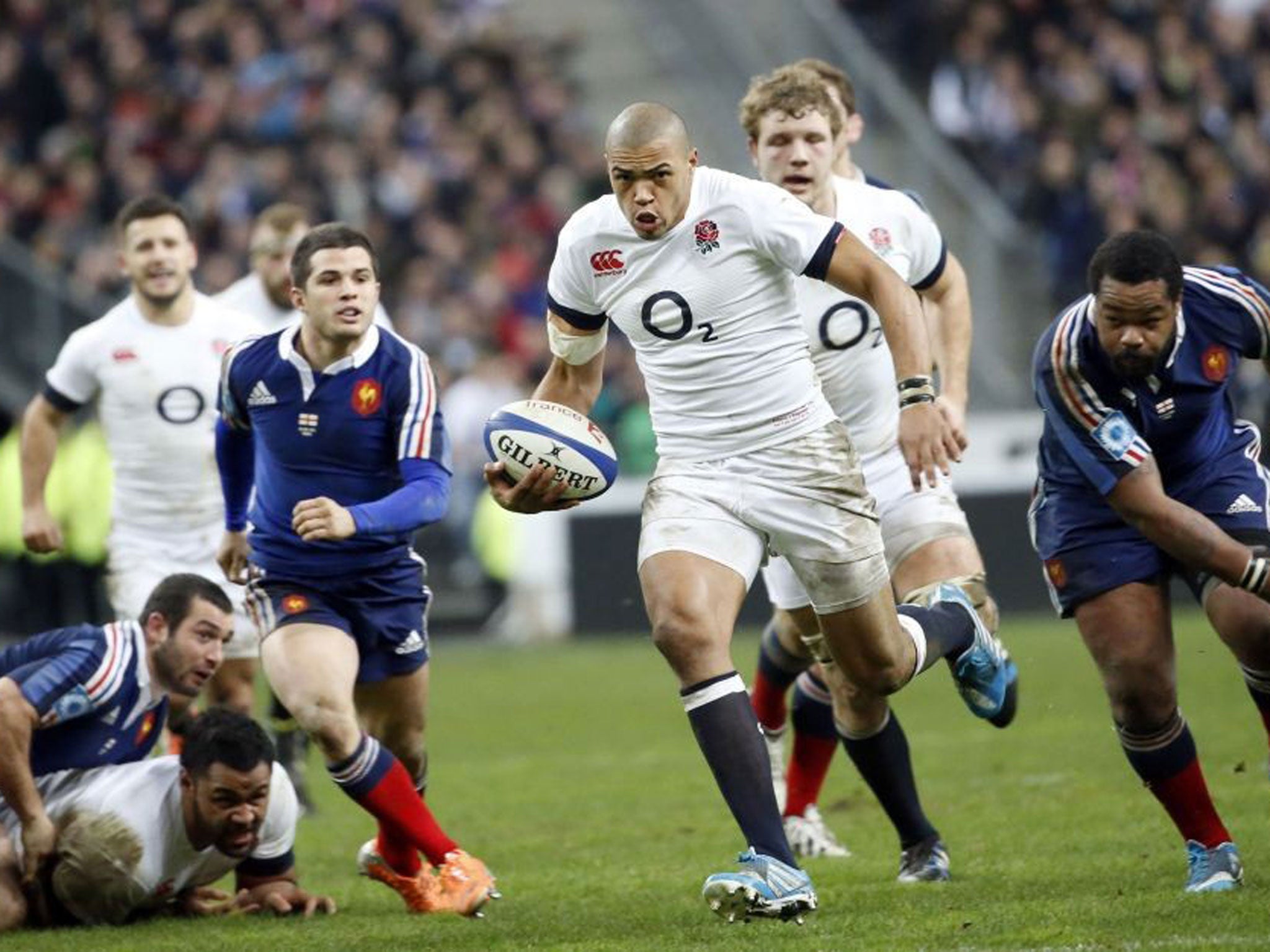The Calvin Report: Stuart Lancaster's new approach carries air of authenticity
The decision by England's coach Lancaster to expose young prospects to top-class competition ends in narrow defeat but his work in formulating a new strategy ultimately will bear fruit

The pace was frantic, the tempo was chaotic and the outcome was traumatic. England's countdown to the 2015 World Cup began in earnest last evening with a brutally punishing, impossibly dramatic defeat in the commune of Saint-Denis on the northern outskirts of Paris.
Head coach Stuart Lancaster has devoted two years to the preliminaries. He has honed his principles, calculated the percentages and committed to the strategy. Recovery from 16-3 down seemed to have bridged the chasm between a whiteboard in a team room and the white heat of a Six Nations collision at the Stade de France.
However, England couldn't close the deal. France stole a narrow victory as even the fashionistas, who had infiltrated the sozzled ranks of rugby tourists in a capacity 82,000 crowd, belted out La Marseillaise. The search for consolation will be difficult, but will not be unproductive.
Though new-age technical and tactical theories were being examined, it was an old-school occasion. It was attritional and spiky, a significant challenge to Lancaster's much-vaunted band of brothers. It enabled England's head coach to discover the current limitations and long-term potential of a team with a specific identity and inalienable collective values.
This was showtime. It mattered little that England were without eight players who have earned the right to consider themselves as first choices. A team with an average age of 24 had to prove the irrelevance of the birth certificate.
The focus inevitably shifted on to the starting backs, who mustered only 13 caps between them. Exeter's right wing Jack Nowell and Northampton's Luther Burrell, converted to outside centre, were debutants. Gloucester's left wing Jonny May was winning only his second cap.
Nowell and May had their nerve and self-confidence tested to destruction under the high ball. It was the rugby equivalent of being caught in an elephant charge. May survived for only seven minutes, after having his nose smeared across his face.
Nowell, whose wispy moustache emphasised his callowness, would have been forgiven for wondering what had hit him. He knocked on with his first touch from the opening kick-off, an error which led to a French try in 32 seconds. He was driven back on his first possession but he showed character in coming back for more.
His lack of communication with Alex Goode, exacerbated by an untimely slip and an unfortunate bounce, presented the French with a second try. He continued to come in off his wing and began to accelerate through tackles but his decision-making was haphazard.
The perils of experimentation are part of international sport. The France coach Philippe Saint-André was trying his 10th half-back pairing in two years and given what was at stake, Burrell's impact had a deeply personal dimension for Lancaster. His try was a relatively simple surge down a corridor that opened in the French defence. It rewarded a bullocking charge by Billy Vunipola and wonderful sleight of hand by Owen Farrell. Lancaster was exultant.
It was a moment of supreme self-justification, 11 years in the making. Lancaster has mentored the Northampton centre through a difficult adolescence and a burgeoning rugby career since he first coached him at the Leeds Academy. He extended his left arm, with his index finger pointing to the heavens in triumph. He is not the first coach to elevate the international jersey into a holy vestment, nor will he be the last. Despite ultimate disappointment last night, there is a sense of renewal and an authenticity about his work.
Lancaster has worked closely in formulating his strategy with the sports psychologist Bill Beswick, whose work in football with Steve McClaren was typically underrated. The pair began to confirm the squad's collective DNA by asking parents, teachers and youth coaches to write to England players to express the importance of the emotional investment placed in them.
Lancaster's most obvious comparison is with Sir Dave Brailsford, rather than Sir Clive Woodward. The man responsible for cycling's success is renowned for the efficiency of his talent identification and development programmes. He knows instinctively when a young athlete is ready to be tested competitively at the highest level. Then sport's law of natural selection takes over.
Lancaster has also emulated the Australian Olympians, who utilised their best sportsmen and women from successive generations in the build-up to their home Games, in Sydney in 2000. The project, a series of seminars entitled "Winning Attitudes", was fronted by Herb Elliott, the legendary 1500 metres gold medallist from 1960.
We will hear more of allegiance to the flag, and an acknowledgement of the importance of duplicating excellence. But ultimately it is the heart that beats beneath the shirt which matters, the mentality of the man asked to overcome his fears and flaws which is decisive. The men in blue were exultant, but those in white will come again.
Six Nations 2014: England player ratings v France
Show all 15Subscribe to Independent Premium to bookmark this article
Want to bookmark your favourite articles and stories to read or reference later? Start your Independent Premium subscription today.

Join our commenting forum
Join thought-provoking conversations, follow other Independent readers and see their replies